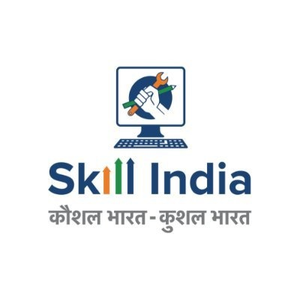New Delhi, Feb 7 (IANS) The Union Cabinet, chaired by Prime Minister Narendra Modi, on Friday approved the continuation and restructuring of the Central Sector Scheme ‘Skill India Programme ’ till 2026 with an overlay outlay of Rs 8,800 crore from the period 2022-23 to 2025-26.
This approval underscores the government’s commitment to building a skilled, future-ready workforce by integrating demand-driven, technology-enabled, and industry-aligned training across the country, according to a statement issued after the meeting.
Pradhan Mantri Kaushal Vikas Yojana 4.0 (PMKVY 4.0), the Pradhan Mantri National Apprenticeship Promotion Scheme (PM-NAPS), and the Jan Shikshan Sansthan (JSS) Scheme – the three key components, are now combined under the composite Central Sector Scheme of ‘Skill India Programme’.
These initiatives aim to provide structured skill development, on-the-job training, and community-based learning, ensuring that both urban and rural populations, including marginalised communities, have access to high-quality vocational education. Under the three flagship schemes of the Ministry of Skill Development and Entrepreneurship, there are more than 2.27 crore beneficiaries till date.
PMKVY 4.0 scheme provides NSQF-aligned skill development training through Short-Term Training including Special Projects and reskilling and upskilling through Recognition of Prior Learning with its target beneficiary being 15-59 years of age, the statement said.
To keep pace with evolving industry demands and the advent of new-age technology, 400+ new courses on AI, 5G technology, Cybersecurity, Green Hydrogen, and Drone Technology, have been introduced, focusing on emerging technologies and future skills.
The blended and flexible learning model now incorporates digital delivery, making training more flexible and scalable. To provide targeted, industry-relevant skills, enabling learners to upskill, reskill, and enhance employability in high-demand job roles, the programme introduces micro-credential and National Occupational Standards (NoS)-based courses ranging from 7.5 to 30 hours.
To strengthen quality training and assessments, a national pool of one lakh assessors and trainers is being developed, ensuring standardisation and expertise across training centres. Industry partnerships ensure access to employment opportunities through Recruit Train Deploy training.
Additionally, the scheme places a strong emphasis on international mobility, ensuring Indian workers are equipped with globally recognised skills.
Under PMKVY 4.0, a whole-of-government approach has been adopted to drive inter-ministerial convergence, ensuring the seamless execution of skilling initiatives across sectors. The scheme caters to the skilling components of various skill development and entrepreneurship schemes, maximising impact and resource efficiency. Key collaborations include PM Vishwakarma under the Ministry of Micro, Small & Medium Enterprises, PM Surya Ghar: Muft Bijli Yojana, and the National Green Hydrogen Mission of the Ministry of New and Renewable Energy, NAL JAL Mitra etc.
The Pradhan Mantri National Apprenticeship Promotion Scheme (PM-NAPS) supports a seamless transition from education to work, ensuring apprentices gain industry-specific skills through real-world exposure. To support both apprentices and establishments in India, 25 per cent of the stipend, up to Rs 1,500 per month per apprentice, will be provided through Direct Benefit Transfer (DBT) during the training period, provided by the Central Government. The scheme is designed for individuals aged 14 to 35 years, ensuring inclusive access to skill development opportunities across various demographics.
The Jan Shikshan Sansthan (JSS) scheme is a community-centric skilling initiative designed to make vocational training accessible, flexible, and inclusive, particularly for women, rural youth, and economically disadvantaged groups and caters to the age group of 15-45 years of age. By delivering low-cost, doorstep training with flexible schedules, JSS ensures that skilling opportunities reach those who need them the most, fostering both self-employment and wage-based livelihoods.
Aligned with national frameworks, all certifications under the Skill India Program are mapped to the National Skills Qualification Framework (NSQF) and seamlessly integrated with DigiLocker and the National Credit Framework (NCrF), ensuring formal recognition of skills and enabling smooth transitions into employment and higher education.
The Skill India Programme aims to create a highly skilled and competitive workforce. As a key driver of economic empowerment, Skill India contributes to employment generation, entrepreneurship, and productivity enhancement across sectors.
–IANS
sps/uk
































